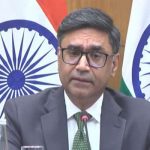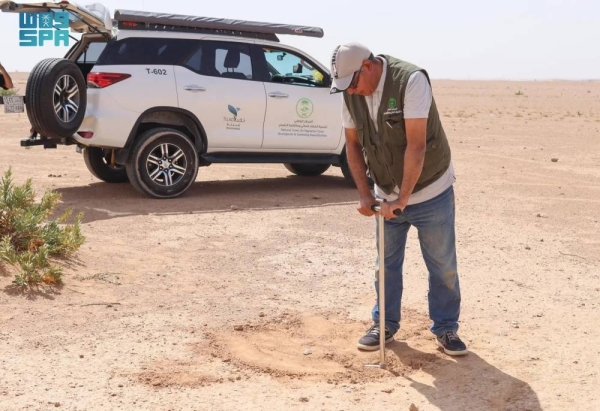The National Center for Vegetation Development and Combating Desertification (NCVC) has taken a significant step forward in its efforts to combat desertification in Saudi Arabia. Through the completion of the first phase of a project aimed at assessing the state of land degradation in the Kingdom, NCVC has created 246 detailed maps that offer valuable insights into desertification trends and the current state of land degradation in various regions. This project involved extensive field surveys, research, and studies to better understand the process of desertification and to identify effective strategies to combat it.
A combination of cutting-edge technologies and traditional methods was employed in the project. Geographic Information Systems (GIS), remote sensing techniques, and field surveys were utilized to gather valuable data. Fieldwork included collecting soil samples for analysis, studying plant life at designated sites, and analyzing satellite imagery. With the completion of the first phase of the project, NCVC has now launched the second phase, starting in the Riyadh region. This phase will focus on identifying areas that are most vulnerable to desertification (hotspots), classifying the causes and types of land degradation, and conducting further field surveys to gather even more detailed data.
The second phase of the project will provide even more detailed insights into the state of land degradation in Saudi Arabia. By focusing on identifying areas that are most vulnerable to desertification, NCVC will be able to target its efforts more effectively. Through the classification of the causes and types of land degradation, the center will be able to tailor its strategies for combating desertification to best address the specific challenges facing each region. The additional field surveys planned for this phase will provide further data to enhance the understanding of desertification trends and help guide future conservation efforts.
NCVC’s use of a combination of advanced technologies and traditional methods demonstrates a holistic approach to combating desertification. By utilizing Geographic Information Systems, remote sensing techniques, and field surveys, the center is able to gather a wide range of data to inform its strategies. This comprehensive approach allows NCVC to take into account various factors influencing desertification and develop targeted solutions that address the specific needs of different regions. The combination of technology and traditional methods also allows for a more thorough analysis of the data collected, leading to more informed decision-making in the fight against desertification.
Through the completion of the first phase of the project and the launch of the second phase, NCVC is demonstrating its commitment to combating desertification in Saudi Arabia. The center’s efforts to assess the state of land degradation and identify areas most vulnerable to desertification will provide valuable insights for future conservation efforts. By employing a combination of advanced technologies and traditional methods, NCVC is able to gather detailed data to inform its strategies and develop targeted solutions to combat desertification. With the completion of the second phase of the project, NCVC will be better equipped to address the challenges of desertification and work towards a more sustainable future for Saudi Arabia’s land.
In conclusion, the National Center for Vegetation Development and Combating Desertification is making significant strides in its fight against desertification in Saudi Arabia. The completion of the first phase of the project to assess the state of land degradation and the launch of the second phase demonstrate the center’s commitment to combating desertification through the use of advanced technologies and traditional methods. By identifying areas most vulnerable to desertification, classifying the causes and types of land degradation, and conducting further field surveys, NCVC is gathering valuable data to inform its strategies and develop targeted solutions. Through these efforts, NCVC is working towards a more sustainable future for the Kingdom’s land and helping to preserve its natural resources for future generations.











